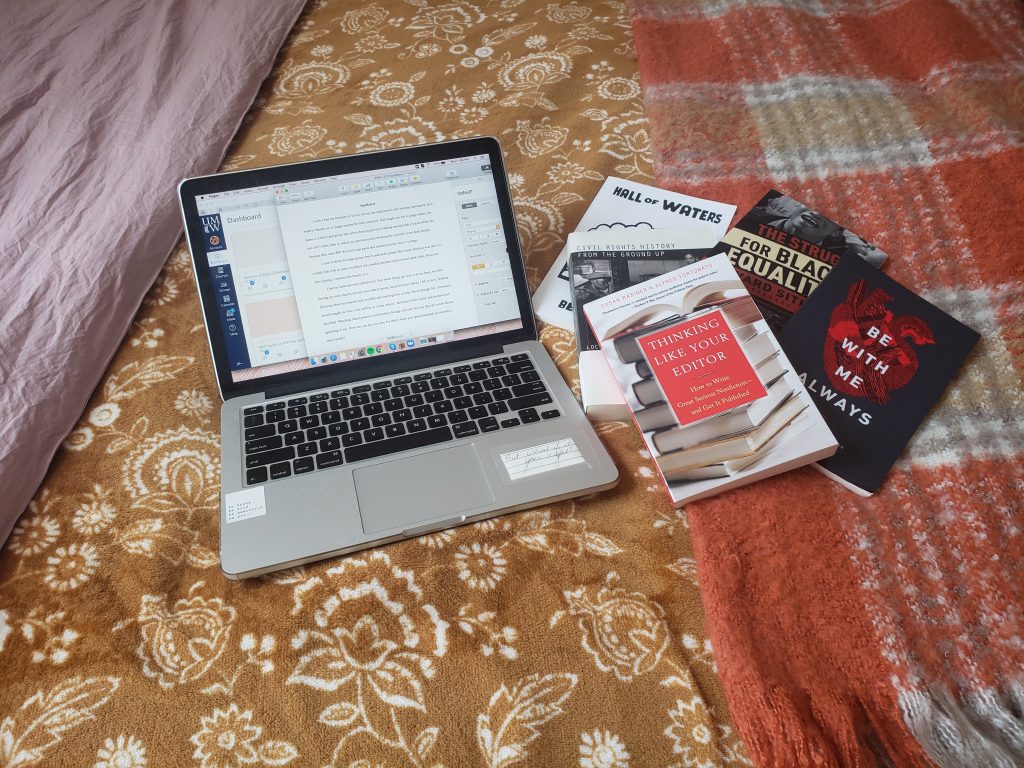Students and professors alike struggle with online learning pitfalls
4 min read
Students transition to online classes (Alicen Hackney | Blue & Gray Press)
By REBECCA MUNSIE
Staff Writer
The first months of 2020 have been nothing short of hectic. Across the globe, people are facing major changes as a result of COVID-19. And while all issues are important on some part of the spectrum, the continuation of education is a major concern.
Aside from unqualified, homeschooling parents, the lack of online and physical resources, and closed libraries, college students and instructors are struggling to maintain their workflow in the consequential conversion to digital learning.
There are pros and cons to online courses, but students need to recognize that it’s not just us who are affected by this change, but professors and the school’s administration as well. Students need to be patient.
I personally have good and bad days with it. There are times where it is very frustrating that I am not able to go up to my professor in class and ask my questions. I understand how many students each professor has and how many emails they get in a day, so some emails would fall between the cracks. Then, there are other times where the classes are my solace. It is very easy for students to just put all the blame on the professors for the downfalls of online learning, but the professors are doing their best and have had to change months of planning within a few short days.
“The reason I am not a fan of online classes is because I miss class time. I miss discussing with my peers and professors,” said sophomore David Mejia.
English professor Eric Lorentzen has faced challenges in this transition like his students. “There are definitely students who are having difficulty,” said Lorentzen. For some students, talking through a computer screen is something that is better for them because of anxiety or shyness that they tend to feel in the classroom but for some other students, this is not quite the case.
“There have been some students who have been upfront with their difficulties within online classes, but there are some students who have just checked out,” said Lorentzen.
A major component of any professor’s job is the one-on-one interaction with their students, and for them not to have that right now is difficult, “I get it, I know it is especially difficult for the students, I remember my own days in university and I would’ve been devastated, so it all makes sense,” said Lorentzen.
“We were strongly encouraged to teach asynchronously so as to assure that all students would be on a level playing field no matter their personal situations/obligations and internet accessibility. While it’s clear that this was the most fair way to proceed, it was really tough to end face-to-face contact so abruptly without wrapping things up and saying a proper good-bye so to speak,” said French Language Professor Brooke Di Lauro.
Other students are struggling because online classes are just not for them. Every student learns differently and for some, online learning is not their strong suit.
“I need that in-class experience for some of my classes,” said Mejia, “my math class is especially brutal, it is very hard to do these problems and not have hands-on learning attached to it.”
Junior Jennifer Ramos also has concerns about online classes. “The communication between professors and students is something that I’m struggling with a lot in my online classes. There are constant changes in assignments and due dates, and it is very hard to reach the professor.”
While there are a number of things about online classes that students do not like, there are some things that students love about online classes.
“I have taken online classes before, and the one thing I like about them is the asynchronous part,” said Paige Foote. We still have deadlines and things to turn in at a certain time, but now we have more time than before. We have more time to get assignments done for classes at our own pace.
Some professors have even found support within their online teaching groups and social media platforms, proving that our community is stronger than ever in some ways. “I have found great pedagogical support in the ‘Higher Ed Learning Collective,’ a Facebook group created by Dr. Broome.
We have been discussing that what we are doing is ‘emergency remote teaching’ and not ‘on-line teaching’ which would require significantly more preparation and rearranging of the assignments and the syllabus,” said Professor Di Lauro. “I found this reassuring and have also greatly appreciated the emotional support provided by another Facebook group, ‘UMW Faculty Moms Teaching from Home,’ where we commiserate about trying to effectively teach while homeschooling our own hooligans.”
For both professors and students, acclimating to our new platform is not going to be instantaneous, and it is going to take a lot of communication from both parties. This might not have been how we students or professors would have wanted our year to end but we all need to work together to somehow find a new, better way to do things. Yes moving online is not ideal and we would have wanted to finish out the year on campus but at this time we need to adapt to our new reality and keep moving forward.











